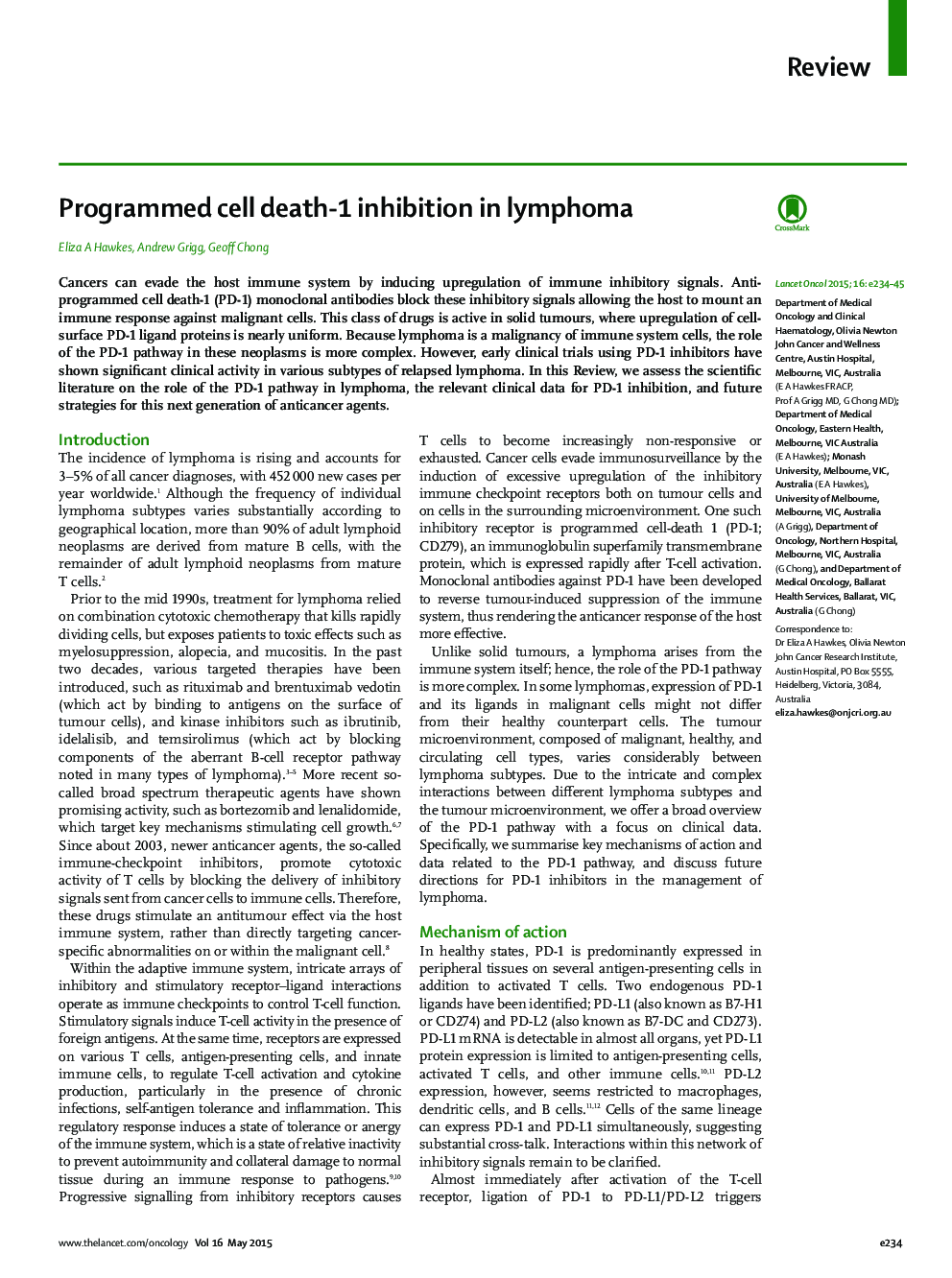| Article ID | Journal | Published Year | Pages | File Type |
|---|---|---|---|---|
| 3994009 | The Lancet Oncology | 2015 | 12 Pages |
SummaryCancers can evade the host immune system by inducing upregulation of immune inhibitory signals. Anti-programmed cell death-1 (PD-1) monoclonal antibodies block these inhibitory signals allowing the host to mount an immune response against malignant cells. This class of drugs is active in solid tumours, where upregulation of cell-surface PD-1 ligand proteins is nearly uniform. Because lymphoma is a malignancy of immune system cells, the role of the PD-1 pathway in these neoplasms is more complex. However, early clinical trials using PD-1 inhibitors have shown significant clinical activity in various subtypes of relapsed lymphoma. In this Review, we assess the scientific literature on the role of the PD-1 pathway in lymphoma, the relevant clinical data for PD-1 inhibition, and future strategies for this next generation of anticancer agents.
